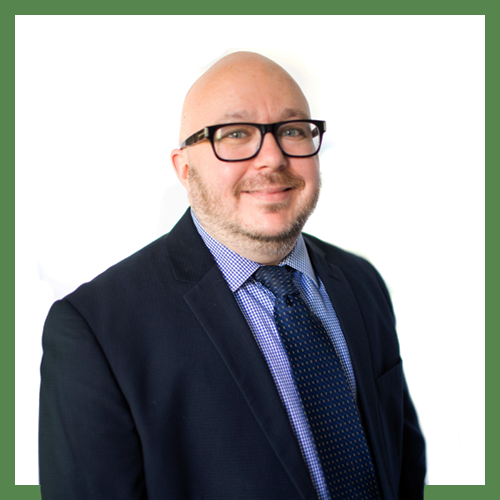COLE THALER | December 22, 2020
There’s an insidious myth about poverty that places the blame on the wrong party.
Marcus was stressed out. The leaks in his apartment were getting worse. Black stuff was now growing on the kitchen walls and in his son’s bedroom. And he was afraid to open the windows for fresh air, because last week a stray bullet hit his front door. At night, he would lie awake listening to gunshots, worrying what would happen if he or his son took a step outside at the wrong moment.
The money Marcus spent on cleaning supplies and mold treatments meant that he was short on rent, and his landlord filed an eviction. In court, he spoke to his landlord’s attorney, describing the poor conditions and the pervasive gunshots and crime his family had been exposed to.

The myth is so ubiquitous in our media and culture that it is often present on a subconscious level.
His landlord’s attorney shrugged. “You chose your zip code when you signed your lease,” she said.
When Marcus told me this story, he was beginning to emerge from the period of homelessness that followed the eviction. I was able to recommend him for a temporary job, which helped him get the momentum he needed to secure new housing. In the grand scheme of things, the attorney’s comment was meaningless, just another demeaning comment that slid off his back.
But I saw the attorney’s comment as worse than insulting or ignorant. I saw it as exemplary of a pervasive and damaging myth. The myth is so ubiquitous in our media and culture that it is often present on a subconscious level. This myth perpetuates inequality even when those who believe it swear that they want to help the poor.

The myth is that poverty is the result of an individual’s failings or missteps – that bad decisions alone cause poverty.
The myth is that poverty is the result of an individual’s failings or missteps – that bad decisions alone cause poverty. The myth holds that personal choices, like taking a low-paying job, have consequences, like living in a crime-ridden neighborhood. People living in poverty are more likely to be overweight, holds the myth, because they make bad food choices. They are more likely to have poor dental health because they don’t bother to see a dentist regularly (or because they choose to use drugs). They are more likely to face eviction because they don’t know how to manage their money.
Inevitably, the believer of this myth sees himself or herself in stark contrast. He pays all his bills because he negotiated with his employer for a higher salary and learned about budgeting. She researched potential neighborhoods before renting an apartment in the one with the lowest crime rate. He has a gym membership, good insurance coverage, a reliable car, and a savings account – all solid choices.
In a society that worships rugged individualism and bootstraps success stories, the myth ignores the systemic forces that advantage some and disadvantage others. By ignoring, for example, that minimum wage has stalled at $7.25/hour since 2009 while housing costs have steadily increased, the myth blames low-income workers for their dilapidated housing.

Most of all, the myth does not recognize privilege – the unearned advantage that smooths the road for some.
By ignoring the market forces that create and sustain food deserts, the myth puts the onus solely on poor people for their lack of access to healthy foods.
The myth does not ask why health care is so expensive, or why public transportation is so limited and inadequate in Atlanta. And the myth does not care to learn about the effects of systemic racism and implicit bias on everything from educational achievement to neighborhood segregation to health outcomes.
Most of all, the myth does not recognize privilege – the unearned advantage that smooths the road for some. Marcus is a Black man; the attorney who insisted that he chose his home poorly is white. This means that any challenges she has faced in her life were not the result of her skin color. Being spared the effects of racism is not a personal accomplishment. And being vulnerable to the many harms and consequences of racism is not a personal failing.

It is urgent that we – individually and collectively — study the uneven playing fields we have built through our policies, our laws, and our institutions
“You chose your zip code when you signed your lease,” the white attorney told Marcus. Her meaning was clear: next time, choose better. She spoke not just for herself, but for our society: Make better choices.
It is urgent that we – individually and collectively — study the uneven playing fields we have built through our policies, our laws, and our institutions. Until we recognize these forces and begin to dismantle what we have built, we are only perpetuating the myth. No act of holiday charity will absolve us of our complicity.
We invite you to consider becoming a monthly supporter of AVLF. Your monthly contribution helps us provide sustained services throughout the COVID-19 crisis.

Cole Thaler
Co-Director, Safe & Stable Homes Project
Check out more from this author.
Cole serves as the co-director of AVLF’s Safe and Stable Homes Project. He supervises the Saturday Lawyer Program and the Eviction Defense Program.
Before joining AVLF, Cole was a supervising staff attorney with Georgia Legal Services Program, where he represented low-income rural Georgians in a variety of civil matters. Previously, Cole worked for Lambda Legal, a national legal organization that works on behalf of lesbians, gay men, bisexuals, transgender people, and those with HIV. Cole attended Williams College before receiving his J.D. from Northeastern University School of Law. He shares his home with two rescue dogs, three rescue cats, and husband.